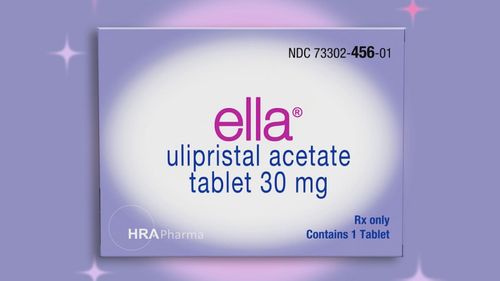Study Shows Emergency Contraceptive Could Replace Mifepristone as Abortion Drug
A new study suggests that a pill used for emergency contraception could be repurposed at a higher dose as an abortion drug, providing a possible alternative to mifepristone, one of the two drugs used in the most common type of abortion in the United States. Mifepristone has been under attack by abortion opponents, with several states seeking in federal court to restrict its use. Now used in two-thirds of U.S. abortions, mifepristone blocks a hormone needed to sustain a pregnancy. It's typically used with misoprostol, which causes contractions and bleeding. In the study, 133 women who were up to nine weeks' pregnant took a 60 milligram dose of ulipristal acetate, the active ingredient in the prescription contraceptive Ella, followed by misoprostol 24 hours later.

A new study suggests that a pill used for emergency contraception could be repurposed at a higher dose as an abortion drug, providing a possible alternative to mifepristone, one of the two drugs used in the most common type of abortion in the United States. Mifepristone has been under attack by abortion opponents, with several states seeking in federal court to restrict its use. Now used in two-thirds of U.S. abortions, mifepristone blocks a hormone needed to sustain a pregnancy. It's typically used with misoprostol, which causes contractions and bleeding. In the study, 133 women who were up to nine weeks pregnant took a 60-milligram dose of ulipristal acetate, the active ingredient in the prescription contraceptive Ella, followed by misoprostol 24 hours later. For 97% of them, that drug combo was effective at inducing an abortion, an effectiveness equal to the mifepristone-misoprostol combination. Four women needed a procedure or an additional medication to complete the abortion. The 60-milligram dose of ulipristal used in the study is twice the dose of Ella, a prescription drug used for emergency contraception.

A new study suggests that a pill used for emergency contraception could be repurposed at a higher dose as an abortion drug, providing a possible alternative to mifepristone, one of the two drugs used in the most common type of abortion in the United States.

Ulipristal acetate combined with misoprostol resulted in pregnancy termination. Nearly all patients -- 97.7% -- deemed the regimen "acceptable" or "highly acceptable" No serious adverse events were reported, but side effects included chills, diarrhea and nausea.

























































